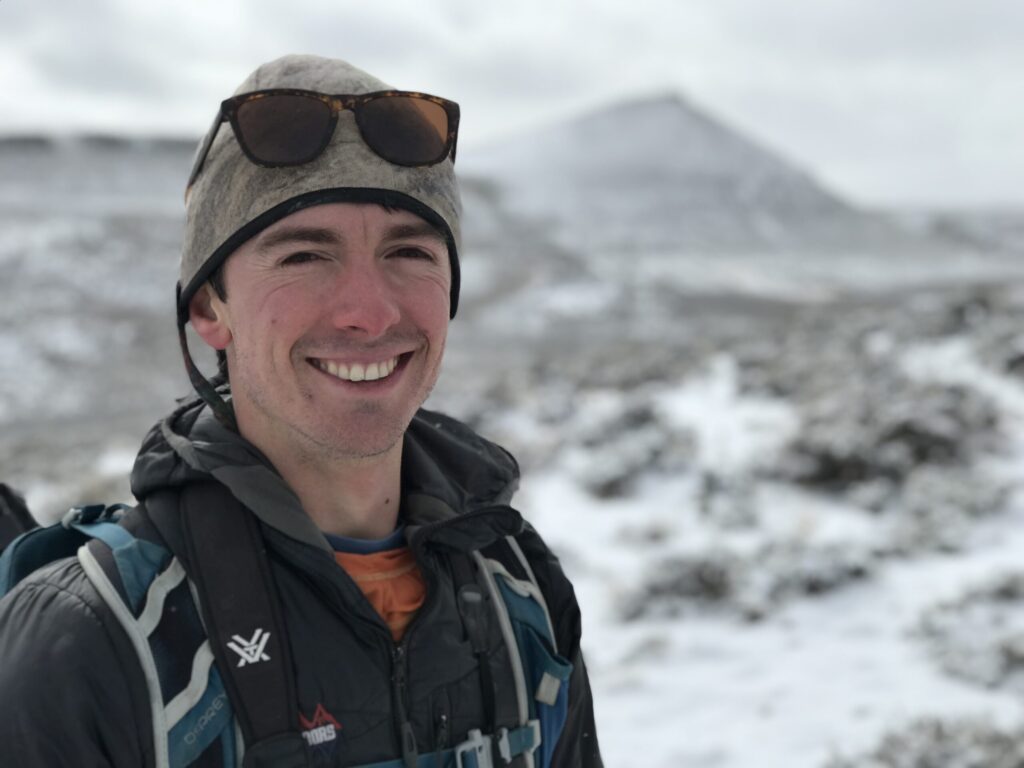 Luke Wilde is a PhD student in Dr. Matthew Kauffman’s lab studying the functional benefits of migrating to ungulate populations and its broader consequences to the species persistence and evolution using movement, longitudinal tracking, and approaches from nutritional ecology. Luke’s work is highly collaborative and the datasets he is lucky to use involve entire communities working together.
Luke Wilde is a PhD student in Dr. Matthew Kauffman’s lab studying the functional benefits of migrating to ungulate populations and its broader consequences to the species persistence and evolution using movement, longitudinal tracking, and approaches from nutritional ecology. Luke’s work is highly collaborative and the datasets he is lucky to use involve entire communities working together.
Originally from Butte, Montana, Luke earned his B.S. in 2017 at Gonzaga University. Before starting his master’s in 2019, he studied the fitness consequences of parasites and temperature — two pressures worsened by human-caused climate change. During his master’s program at the University of South Carolina he studied the influence of individual and ontogenetic variation on the consequences of top-down and bottom-up interactions in communities of breeding water birds.
Professional Preparation and Appointments
B.Sc. Biology, Gonzaga University, 2017.
M.Sc. Biological Sciences, University of South Carolina, 2021.
Publications
Wilde, L.R., R. Swift, J.E. Simmons, and N.R. Senner. 2022. Dynamic sensitivity to resource availability influences population responses to mismatches in a shorebird. Ecology 103(9), 1-8.
Wilde, L.R., R. Swift, and N.R. Senner. 2022. Behavioural adjustment in the association with dangerous heterospecifics according to variable risk balances cost-benefit trade-offs. Journal of Animal Ecology 91(4), 870-882
Wilde, L.R., … Z.A. Cheviron, and N.R. Senner. 2019. Botfly infections impair the aerobic performance of mid-elevation populations of deer mice. Functional Ecology, 33: 608-618
Wilde, L.R., L. Günther, … and M. Nagy. 2018. Thermoregulatory requirements promote regular relocations among male territories and shape mating opportunities of male proboscis bats. Frontiers in Ecology and Evolution, 6(199).
Projects
